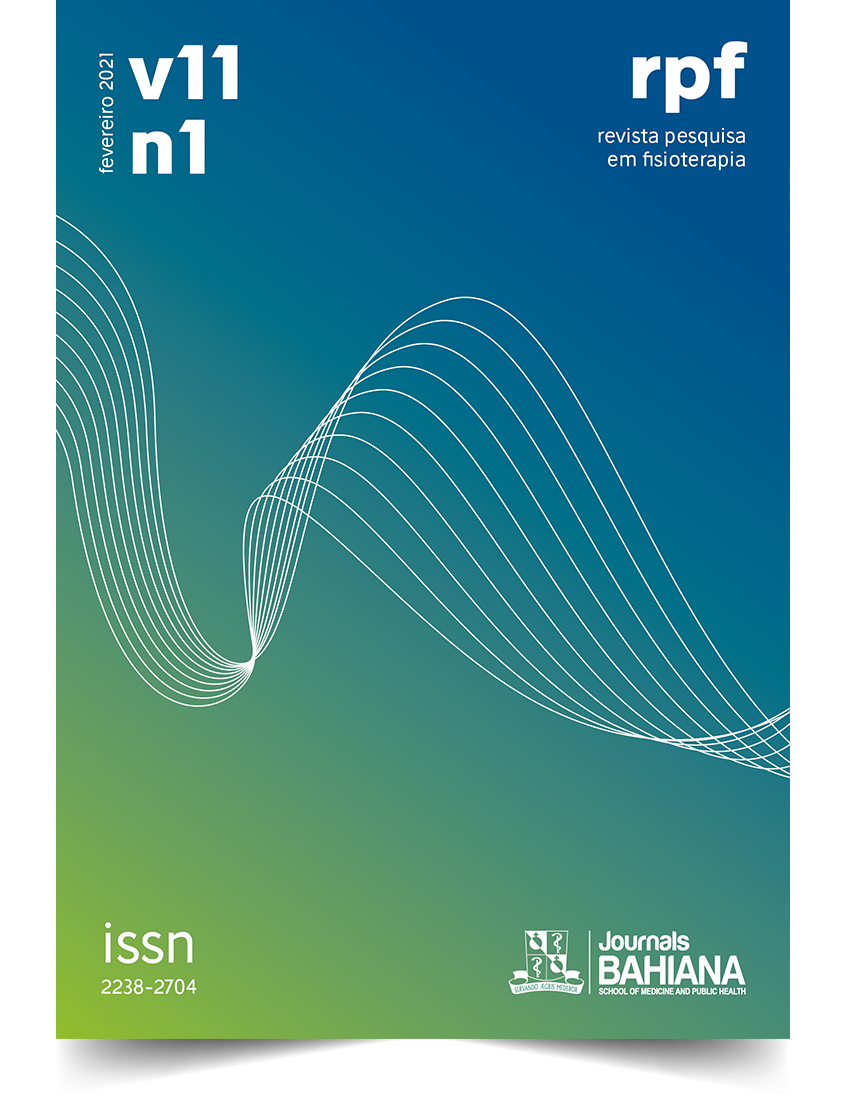Associação entre qualificação profissional de fisioterapeutas e a percepção sobre o tratamento de osteoartrite de joelho: um estudo transversal
DOI:
https://doi.org/10.17267/2238-2704rpf.v11i1.3421Palavras-chave:
Inquéritos e questionários. Osteoartrite de joelho. Prática profissional. Modalidades de fisioterapia.Resumo
INTRODUÇÃO: A Osteoartrite (OA) é a forma mais prevalente de artrite e requer intervenção terapêutica adequada. A Fisioterapia desempenha um importante papel no manejo desta doença. No entanto, pouco se sabe sobre as crenças e intervenções de fisioterapeutas que tratam OA no Brasil e fatores relacionados às decisões clínicas. OBJETIVO: Determinar se existe associação entre a qualificação profissional de fisioterapeutas na região Norte do Brasil e a percepção de eficiência ou ineficiência de intervenções terapêuticas para OA de joelho. MATERIAIS E MÉTODOS: Uma pesquisa transversal online foi realizada com fisioterapeutas de cinco estados do Norte do Brasil e a percepção sobre 20 intervenções foi avaliada por meio de um caso hipotético de OA de joelho. O teste qui-quadrado e regressão logística binária com nível de significância de 5% foram utilizados para a análise estatística. RESULTADOS: 370 profissionais com média de idade de 32,16 ± 6,89 responderam a pesquisa. Houve associação significativa entre qualificação e percepção de eficiência das intervenções. Fisioterapeutas apenas graduados apresentaram menos chances de reconhecer ultrassom, ondas curtas, neuroestimulação elétrica transcutânea e estimulação elétrica, crioterapia, calor, fortalecimento muscular, kinesio taping e repouso como intervenções ineficazes. O mesmo ocorreu com as intervenções ultrassom, fortalecimento muscular e kinesio taping para especialistas. CONCLUSÃO: O menor grau acadêmico leva à uma chance menor de perceber como pouco eficientes ou ineficientes algumas intervenções não recomendadas para OA de joelho.Downloads
Os dados de download ainda não estão disponíveis.
Downloads
Publicado
23.02.2021
Edição
Seção
Artigos Originais
Como Citar
1.
Monteiro NRO, do Rosário DJ, Ferreira VTK, Ohara DG, Pegorari MS, Lombardi Júnior I, et al. Associação entre qualificação profissional de fisioterapeutas e a percepção sobre o tratamento de osteoartrite de joelho: um estudo transversal. Rev Pesq Fisio [Internet]. 23º de fevereiro de 2021 [citado 30º de janeiro de 2026];11(1):173-80. Disponível em: https://journals.bahiana.edu.br/index.php/fisioterapia/article/view/3421



